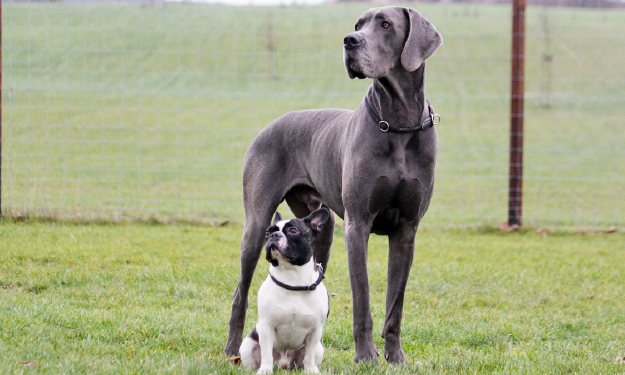Poor Air Quality and Pet Safety

Air quality has been trending in the news recently, mostly due to air pollution from the Canada wildfires. Even our smartphones now have alerts on appropriate AQI (Air Quality Index) levels.
So what does this mean for our beloved pets? Do they face the same concerns? Is there anything pet owners can do to protect our pets, and are there certain pets at higher risk?
Are pets affected by air quality?
Pets are susceptible to the adverse effects of air pollution, just like humans. Outdoor air quality can be impacted by:
- fire pollution
- proximity to heavy traffic areas
- industrial zones
In addition to outdoor air quality, pets can be affected by indoor air quality as well:
- cleaning products
- tobacco smoke
- cooking fumes
- non-stick cookware or cooking at high temperatures (can be fatal to some birds!)
Which pets are high risk?
Certain pets will be considered higher risk for poor air quality. These pets often have some underlying disease impacting their respiratory system:
- asthma
- cardiac disease
- collapsing trachea
- allergic bronchitis
- lung or throat cancer
- obesity
However, the pets that may be at the highest risk of poor air quality may be our brachycephalic patients (i.e. Bulldogs, Pugs, Persian cats). These breeds have a short and broad skull shape, a pushed-in nose, smaller opening at the nares, extra tissue in the throat, elongated soft palate and narrowing of the trachea (windpipe). These anatomical features create a strain on the respiratory system. With the addition of any respiratory irritant can cause extreme distress and in some cases – death.
The French Bulldog, for example, just exceeded the Labrador in the U.S. for the most popular breed. Frenchie’s are FULL of personality & cuteness, but their respiratory systems leave them predisposed to very concerning respiratory issues.
Clinical Signs of Respiratory Distress in Pets
Some symptoms to look out for are:
- Excessive panting
- Tongue hanging out the side of the mouth and unable to calm pet down
- Discoloring of the oral tissues to dark purple
- Abdominal effort when breathing at restful times
- Extended neck
- Distressed appearance or reluctance to eat or drink
Diagnosis
Any respiratory concerns should be brought to your veterinarian for appropriate evaluation. Medication may be administered upon arrival to help calm your pet and allow diagnostics to be performed to determine the underlying cause.
Treatment
After appropriate diagnostics are performed, treatment options can vary. These can be as simple as an inhaler or a simple oral medication to extensive as emergency surgery in brachycephalic patients to help open their airways.
Prevention: Keeping Your Pet Safe During Air Quality Alerts
When monitoring air quality levels, the same precautions recommended for humans can be applied for our veterinary patients. Patients with pre-existing conditions and especially those brachycephalic patients need to be treated with extra care:
- keep pets indoors when air quality levels are not safe
- keep windows closed
- keep an AC unit running
- an air purifier can help keep air quality levels safe inside
If you are ever concerned with how your pet is breathing, have them evaluated by a veterinarian. Breathing concerns can be a true medical emergency.